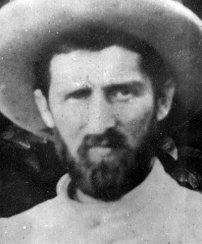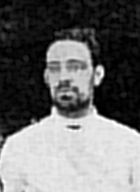View entry
Name: GRIMSHAW, Edmund (Father)


Birth Date: 24.4.1874 Highbridge, Somerset
Death Date: 20.6.1949 Uganda
Nationality: British
First Date: 1899
Profession: Mill Hill Fathers - 3rd caravan to Uganda; arr. Nsambya, Kampala 11/2/1900
Area: Nsambya, Kampala, Kisumu
Book Reference: North, Hut, Drumkey, BEA, EAHB 1907, Leader14, Beck
General Information:
EAHB 1907 - Kisumu
Hut has E. Grimshaw, 1909, Kisumu
Daniel L. Sifuna, THE MILL HILL FATHERS AND THE ESTABLISHMENT OF WESTERN EDUCATION IN WESTERN KENYA 1900 – 1924: SOME REFLECTIONS, Transafrican Journal of History, Vol. 6/7 (1977-78), pp. 112-128 Of the first attempt to establish a mission at Mumias, Fr. Grimshaw recorded that 'This spot was thought to be unaccountable for real missionary work. Boys came for secular education only, and expected to be paid for attending school'. And also 'These circumstances force the missionaries to go further inland (from Kisumu). Mumias was closed and a new mission at Kakamega was started towards the end of 1906. Lack of collaboration with the missionaries tended to hamper the development of education in several parts of the colony and protectorate. On the coast, the Wanyika elders at Rabai agreed to allow their children to attend the mission school on a voluntary basis but refused to use any compulsion, so attendance was very irregular. Some chiefs proved obstructive, like in 1902 chief Paulo of Kisumu asljed the Mill Hill Fathers for payment if his people went to school, because education was often viewed as a contribution of labour to the mission station. A typical catechumenate school programme is described by Father Grimshaw as follows: At 6.00 a.m. Holy Mass was said.... At 7.45 catechism time and the more intelligent Christians took a hand in asking the questions of their fellows and giving the correct answers. Then at 8.30 a.m. the priest took over the class and taught the catechism with practical bearing on life. In the morning classes subjects included, God, the Angels, the Commandments of God; sin, Redemption, Grace, Baptism, Prayer, The Church, The Theological Virtues.... In the afternoon classes, the Commandments of the Church, the Sacraments.... After catechism class, the older people usually withdrew.... the younger people then did their schooling in the three R's. Father Grimshaw further commenting on the Mill Hill Fathers' educational policy noted, 'We Catholics followed the Protestants in as far as we introduced the custom of reading,' writing and doing a bit of arithmetic into our catechumenates, which acted as village schools on weekdays. We did so to enable the young people to refresh their religious knowledge at home by reading what Catholic books there were. These comprised of a catechism, a simple prayer book, a simple Bible and Church history. Reading as such was not of obligation with us, but the children found it quite right to vie with the Protestants in that point. The schools in the villages were of the simplest materials and style, but slowly larger, stronger and better'.
